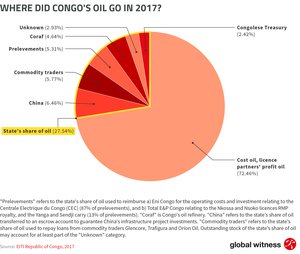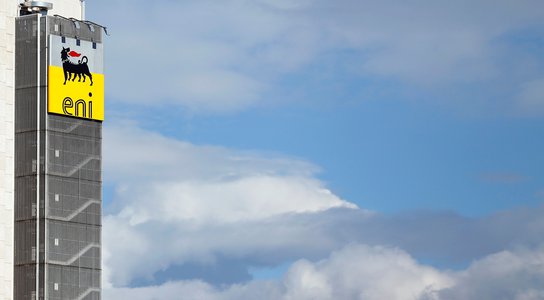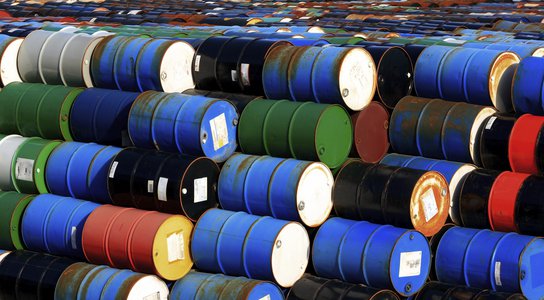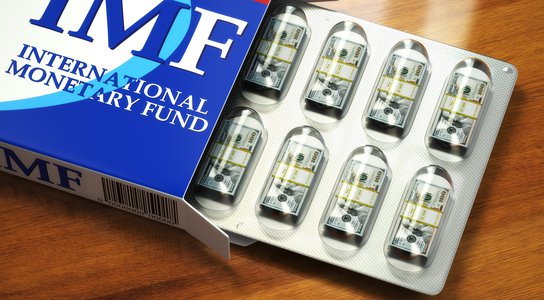Republic of Congo, Sub-Saharan Africa’s third largest oil producer, is facing bankruptcy. In July 2019, it received its fourth multi-million dollar bailout from the IMF.

At the heart of its ailing oil-dependent economy is SNPC, its national oil company, a notorious black box that has been plagued by corruption scandals since its incorporation in 1998.
Under IMF pressure, previously hidden accounts and oil contracts have finally seen the light of day. Our exclusive analysis of these documents sheds light on why Congo is getting so little in return for its oil – the dollar equivalent of just over two per cent of the country’s total oil production in 2017, according to the Extractive Industries Transparency Initiative. We reveal apparent abusive commercial practices by foreign oil companies and millions of dollars in missing funds. In particular, we show that:
- SNPC is carrying up to $3.3 billion in previously undisclosed oil-backed liabilities, which could bring Congo’s total public debt to almost $13 billion – adding over a third to the IMF’s latest estimates
- Of this, $2.7 billion, equivalent to around 24 per cent of Congo’s GDP, was owed by SNPC to oil majors, including Total, Chevron and Eni, at the end of 2018. These liabilities are primarily for operating costs that the majors are covering on SNPC’s behalf. However, our analysis reveals that they can recover an extensive range of costs, including salaries and pension contributions for employees, their medical, transport, telephone and accommodation fees, and their children’s school fees. Total’s predecessor Elf even managed to get a $50 million ‘signature bonus’ – a one-off signing fee and key source of state oil revenue – treated as one of these costs, and charged Congo interest on this so-called “loan.” In effect, Congo’s representatives appear to have agreed to subsidise the business overheads of some of the largest oil companies in the world
- Publicly-listed Italian oil major Eni may have written-off over $280 million in liabilities amid a licence renewal process that is the subject of a Milan corruption probe and recent Global Witness investigation. Our analysis raises further serious questions around those deals and the commercial justification for this apparent write-off
- From 2016 to 2018, $156 million in dividends, which should have been paid to the Congolese state, SNPC’s sole shareholder, appear to have gone missing. Where has this money gone?
- At the end of 2018, SNPC was owed $1.18 billion – a sum that exceeds its annual turnover – by mostly unidentified entities. To whom is SNPC lending money and why?
Overall, our analysis takes us a step closer to understanding the flow of money and oil in one of the world’s longest lasting kleptocracies. It provides unique insights into the inner workings of a national oil company, typically secretive companies that control a whopping ninety per cent of known global reserves.
We call upon the Congolese government and the IMF to carefully consider SNPC’s liabilities in future fiscal planning, including any debt sustainability analyses. The IMF, national EITI committee and Congo’s authorities and citizens should demand clarity from SNPC over the money it owes, the money it is owed and its missing millions. Congo’s officials should revisit and, where appropriate, renegotiate any outdated and unfair production sharing contracts, and submit all costs invoiced to SNPC by international oil companies to an independent public audit.
Read the full investigation here.
Credit for banner image: Veronique DURRUTY/Gamma-Rapho via Getty Images
Contacts
You might also like
-
Briefing The Spotlight Sharpens
Global Witness has exposed strong evidence of high-level corruption relating to four of Italian oil giant Eni’s licences in Republic of Congo.
-
Blog post Hey, Big Lenders
The arrival – or increased presence – of commodity traders on the lending scene is concerning, and could be a key factor in Africa’s current debt problems.
-
Article Strings Attached
After almost two decades of broken promises, IMF must secure Congo oil sector transparency actions before any new bailout.